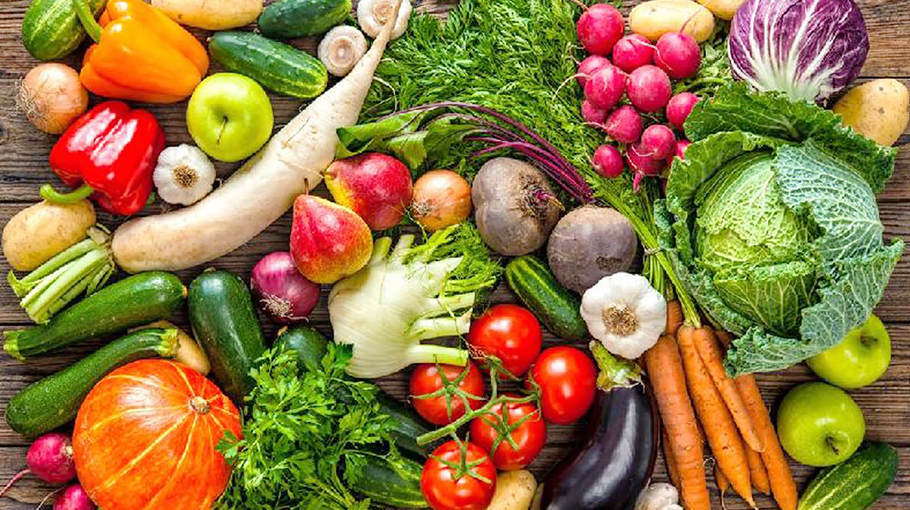Hybrid seeds, vegetables posing threat to indigenous varieties

Varieties of hybrid seeds, now widely used by the farmers of the country are posing a serious threat to the traditional, age- old, locally produced, indigenous crops and vegetables.
Moreover, the introduction of genetically modified seeds, plants, crops and vegetables in the country would have a disastrous effect on the health and nutrition of the people as well as on the environment.
According to sources, Bangladesh has already been flooded with a huge number of hybrid seeds and plants which are being widely cultivated by the farmers of the country.
Specially, the local varieties of fine rice which were being produced by our farmers for ages, have become extinct or on the verge of extinction.
Earlier, hundreds of varieties of fine rice were produced in Rajshahi, Naogaon, Chapainawabganj, Dinajpur, Rangpur and other districts of the country But, most of those fine varieties of rice are now extinct.
According to sources of Agriculture Extension Department, there were around 30,000 varieties of local rice in the country most of which have by now become extinct, even names of many of such varieties have been obliterated.
Read More: Hybrid seeds posing threat to indigenous varieties
Specifically, the Barind tract of greater Rajshahi and Bogra districts were famous for the production of such varieties of fine rice. Those rice varieties had no match in terms of taste, aroma, quality and nutrition.
But, now-a-days, the farmers of the Barind region no longer cultivate genuine, local varieties of Raghu shail, Jhinga shail, Paijam, Kalo Jira, Chini Modhu and hundreds of other varieties of fine rice.
The aromatic Basmati rice, an indigenous and prestigious variety of rice of the Barind region, was cultivated by the farmers of the region for centuries.
However, for want of processing and marketing facilities, the farmers of the region abandoned the cultivation of Basmati. As a result, the cultivation of Basmati was ultimately grabbed by the farmers of Thailand, India and Pakistan and by the government patronisation of the respective countries.
Not only for rice but also for cereals like mustard, gram, lentil, mungbean, Kalai, maize, wheat and pulses with innumerous hybrid varieties are being cultivated widely in the country.
Though the taste and odour of those hybrid cereals has deteriorated, the farmers are interested in cultivating those crops because of their high production and harvesting rate, less crop loss and healthy looking.
Almost all the vegetables including brinjal, bitter gourd, potato, cabbage, cauliflower, potato, cucumber, lemon, gourd, bean, lady's finger, papaya, ridge gourd, Borboti (bean), green chilli, ginger, onion, garlic, tomato, radish and sweet gourd which are now available in the country belong to the hybrid variety.
It is no wonder that these hybrid varieties of vegetables do not grow without excessive use of chemical fertilisers, pesticides and insecticides.
The Chinese variety of brinjal needs a daily spraying of toxic pesticides for its healthy growth. It is impossible to produce hybrid varieties of tomato
without the use of excessive chemical fertilisers and pesticides, the early varieties of cabbage, cauliflower, tomato, potato and other winter vegetables also require a huge application of chemical fertilisers and pesticides for their growth.
Now- a-days, the local varieties of red radish, ucchey ( local varieties of small korolla), lentil, gram, mungbean, gourd and tomato are on the verge of extinction.
Dr Ahsan Habib, a renowned physician, informed that consumption of hybrid vegetables is highly injurious to health. The hybrid varieties of brinjal, lady's finger, tomato, radish, onion, garlic, bean, ginger, gourd and onion lack taste, aroma and nutritive value.
The doctors and the elderly people are of the opinion that the use of unlimited chemical fertilisers and pesticides has made all the crops and vegetables of the country toxic.
They said, even 35 to 40 years ago when there was no use of chemical fertilisers and pesticides, people had no idea what Acidity, Hypertension, cancer and many other complex diseases were.
They further said, indiscriminate use of chemical fertilisers and poison in the fields and on the plants has changed the qualitative value of crops and vegetables and thus consumption of those is posing a threat for human health and environment.
Moreover, 'one time use' of hybrid seeds is making the farmers hostages to the multinational companies who produce and market those seeds. Though it is claimed that hybrid seeds yield 20 to 30 percent more crops than the High Yield Variety (HYV) seed, the price of hybrid seed was 15 to 20 times more than those of HYV seeds.
For example, the price of hybrid rice seed was Tk 250 to 350 per kilogramme as against Tk 50 to 55 for the local variety or High Yield Variety (HYV) of seeds.
The cost of production of hybrid crops and vegetables are also more than those of HYV crops because hybrid crops and vegetables require round the clock caring, more fertiliser, water, pesticides and weeding.
By not developing hybrid seeds locally, the multinational companies are making the farmers of the country dependent on them which would pose a disaster for our agriculture.
However, the government of our country has directed the agro-scientists to develop hybrid seeds at our own laboratories and within a short span of time; our scientists are expected to be able to develop our own hybrid seeds and thus relieving our farmers from the grips of the multinational companies.



